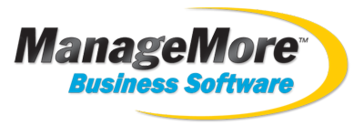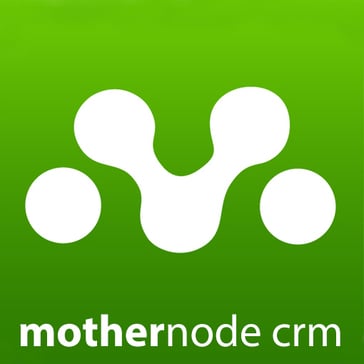4.7
NetSuite ERP Review
Learn from our NetSuite ERP review! Explore its features, pricing, security, updates, and support. Evaluate its value for money today!
Introduction to NetSuite ERP
This NetSuite ERP review offers an initial look into a leading cloud-based business management solution. Understanding NetSuite ERP is essential for unifying financials, inventory, and customer relationships on a single platform, streamlining operations effectively. This introduction provides a concise overview before deeper dives.Getting started with NetSuite ERP can unlock significant benefits for businesses of all sizes. We'll explore NetSuite ERP basics, covering core functionalities and distinct advantages. The following content will detail the comprehensive benefits of NetSuite ERP, aiding your evaluation.
Comprehensive Overview and Target Audience of NetSuite ERP
NetSuite ERP stands as a pillar in the cloud-based business management software landscape, rightfully positioned as a premier, all-in-one Enterprise Resource Planning solution. Its core purpose is to provide a single, unified platform where a business can manage all its key operational processes: from complex financial accounting and order management to inventory, supply chain, and customer relationship management. Unlike disparate systems that create data silos and operational friction, NetSuite operates on a single data source, offering a real-time, 360-degree view of the entire business. Its market position is firmly established within the mid-market and for rapidly scaling enterprises that have outgrown the limitations of basic accounting software and require a robust, flexible foundation for future growth.
The ideal customer profile for NetSuite ERP is a business grappling with complexity and scale. This typically includes mid-sized companies with 50 to 1000+ employees, as well as enterprise divisions seeking agility. Key industries that derive immense value from NetSuite include wholesale distribution, e-commerce, manufacturing, software and technology, retail, and professional services. The target user roles are strategic leaders and operational managers. CFOs are drawn to its real-time financial reporting and compliance capabilities. Operations Managers leverage it to streamline processes from procure-to-pay to order-to-cash. E-commerce and Supply Chain Managers depend on its unified inventory and order management features to optimize stock levels and ensure timely fulfillment across multiple channels.
Key Takeaways
- Unified Business Command Center: NetSuite excels for mid-market companies seeking to eliminate data silos by consolidating financials, CRM, inventory, and e-commerce into a single, real-time platform.
- Significant Investment Required: The total cost of ownership, which includes licensing, a complex implementation process, and potential customizations, is substantial and can be a significant barrier for smaller businesses or those with static operations.
- Unmatched Real-Time Visibility: Its standout feature is the powerful, role-based dashboards and SuiteAnalytics, which provide unparalleled, real-time visibility into key business metrics, enabling data-driven decision-making across the entire organization.
- Future-Proof Scalability: NetSuite’s true cloud architecture and modular design provide a scalable foundation that grows with your business, from a high-growth startup to a global enterprise, without requiring costly infrastructure overhauls.
User Experience and Functional Capabilities
The NetSuite ERP user experience is a tale of power over polish. For new users, the interface can appear dense and functionally packed, lacking the minimalist aesthetic of some modern SaaS applications. This initial complexity represents a steep learning curve. However, this design philosophy prioritizes function and information density. Once a user becomes proficient, the platform’s true strength is revealed: its role-based architecture. Dashboards are highly tailored to individual responsibilities; a CFO sees real-time financial KPIs, while a warehouse manager monitors inventory levels and order fulfillment statuses. These dashboards are the central hub for ‘how to use NetSuite ERP’ effectively, serving as a personalized command center. Navigation is persistent and logical, and global search functionality is robust, allowing users to quickly find records, transactions, or reports. Our ‘NetSuite ERP user experience insights’ conclude that while initial acclimatization requires commitment, the long-term payoff is a highly efficient and data-rich environment customized to each user’s specific role within the organization.
Core Features and Functionality
NetSuite’s functional depth is vast, but three core capabilities stand out as pillars of its value proposition.
- Financial Management and Accounting: This is the heart of NetSuite. It provides a comprehensive suite of tools including a robust general ledger, accounts receivable and payable, multi-currency and multi-subsidiary consolidation, and fixed asset management. The primary benefit is the creation of a single source of financial truth. This drastically accelerates the financial close process, automates complex revenue recognition, and provides CFOs with real-time visibility into the company’s financial health, enabling more strategic forecasting and planning.
- Inventory and Order Management: For product-based businesses, this functionality is transformative. NetSuite centralizes inventory tracking across multiple locations, warehouses, 3PLs, and sales channels. It automates the entire order lifecycle with intelligent fulfillment logic, managing everything from sales order entry and allocation to shipping and billing. The benefits include reduced stockouts and carrying costs, improved order accuracy, and a streamlined supply chain that enhances customer satisfaction.
- Customer Relationship Management (CRM): Unlike bolting on a third-party CRM, NetSuite’s integrated CRM provides a seamless flow of information from lead to final sale and beyond. It offers a complete view of every customer interaction, including sales orders, support cases, and financial transactions. This unified data empowers sales teams with real-time information on customer history and inventory availability, improves marketing campaign effectiveness, and enhances customer service.
Implementation and Onboarding
A critical point in any ‘NetSuite ERP implementation guide’ is that this is not a plug-and-play solution. Implementation is a significant project requiring dedicated resources, careful planning, and expert guidance, typically from a certified NetSuite partner or their professional services team. The process involves a deep discovery phase to map business processes, followed by configuration, extensive data migration, and user acceptance testing. Onboarding is similarly structured and intensive. New users are trained based on their specific roles, focusing on the dashboards, reports, and workflows they will use daily. While demanding, this meticulous approach ensures the platform is correctly configured to meet specific business needs from day one, maximizing the return on investment.
Customization and Integration Capabilities
One of NetSuite’s most significant competitive advantages is its profound ability to be tailored to unique business processes. This is accomplished through the SuiteCloud platform, a comprehensive set of tools that allows for extensive modifications without compromising the core ERP’s upgrade path. For businesses that feel constrained by rigid, out-of-the-box software, ‘customizing NetSuite ERP’ is a primary reason for its adoption. The platform allows for a level of personalization that transforms a generic ERP into a bespoke business operating system.
Customization Options
Customization ranges from simple point-and-click adjustments to sophisticated development. With SuiteBuilder, users can add custom fields to existing records, create custom forms, and even design entirely new custom record types to track data unique to their industry or operations. SuiteFlow provides a visual workflow manager, enabling non-technical users to automate complex business processes like multi-stage purchase order approvals or lead routing rules. For the most demanding requirements, SuiteScript allows developers to use industry-standard JavaScript to build powerful applications and scripts that extend NetSuite’s functionality, from custom UI elements to complex business logic and integrations. This multi-layered approach ensures that businesses can adapt the system precisely to their needs.
Integration Ecosystem
While NetSuite’s unified nature reduces the need for many integrations, no ERP exists in a vacuum. The strategy for ‘integrating NetSuite ERP with other tools’ is robust and multifaceted. The platform’s SuiteTalk web services provide powerful SOAP and REST APIs, enabling deep, real-time integrations with third-party applications, from specialized logistics software to proprietary corporate systems. Furthermore, the SuiteApp marketplace acts as NetSuite’s app store, offering hundreds of pre-built, certified applications developed by partners to address specific needs like advanced tax compliance, human resources management, or shipping carrier integrations. This combination of a powerful native API and a rich partner ecosystem ensures that businesses can create a connected and seamless technology stack with NetSuite at its core.
How NetSuite ERP Solves Business Challenges
Pain Points Addressed
Growing businesses inevitably face operational ceilings imposed by their foundational software. NetSuite is specifically designed to break through these ceilings by addressing critical, systemic pain points that stifle growth and efficiency.
- Challenge 1: Data Fragmentation and a Lack of a Single Source of Truth. Many companies operate with a patchwork of disconnected systems: one for accounting, another for sales (CRM), and often a series of spreadsheets for inventory and order tracking. This creates data silos, necessitating constant manual data entry and reconciliation. The result is error-prone reporting, delayed decision-making, and an enormous waste of employee time. NetSuite directly solves this by housing all operational data within a single, unified database. When a sales order is entered, inventory levels are automatically adjusted, and financial projections are updated in real-time. The finance, sales, and operations teams all work from the exact same information, eliminating discrepancies and providing leadership with a trustworthy, holistic view of the business at any moment.
- Challenge 2: Inefficient Manual Processes and Poor Productivity. As a business scales, manual workflows become crippling bottlenecks. Manually processing orders, chasing approvals for purchase requests, or manually compiling financial reports consumes valuable time and introduces risk. NetSuite tackles this through extensive automation. Its workflow engine can automate entire business processes, such as the order-to-cash cycle, which automatically converts a sales order into a fulfillment order, shipment, and finally an invoice with corresponding journal entries. This automation frees employees from repetitive, low-value tasks, allowing them to focus on strategic activities that drive growth.
Primary Use Case Scenarios
A powerful ‘NetSuite ERP use case scenario’ is a multi-channel retail or e-commerce company. Such a business might sell through its own website, on marketplaces like Amazon, and in physical stores. NetSuite unifies inventory across all these channels. When an item sells online, the system automatically depletes the stock count for all channels in real-time, preventing overselling. It can then intelligently route the order to the nearest warehouse or store for fulfillment, generating picking lists and shipping labels. The entire transaction, including sales data and cost of goods sold, is instantly reflected in the financial statements. For ‘NetSuite ERP for small businesses’, the value proposition is for those on a high-growth trajectory. A rapidly scaling startup can implement a phased approach like SuiteSuccess Starter Edition. This provides a foundational ERP to manage core financials and inventory from the outset, establishing best practices and avoiding the massive operational pain and data migration costs of switching systems down the road when complexity inevitably increases.
Scalability and Security
Scalability for Business Growth
NetSuite’s architecture is fundamentally built for ‘business scalability’. This is perhaps its most compelling long-term value proposition. As a true multi-tenant cloud solution, all infrastructure management, maintenance, and updates are handled by Oracle, freeing businesses from the cost and complexity of managing on-premise servers. This model allows companies to grow without worrying about outgrowing their system’s capacity. The growth path within NetSuite is seamless. A company can begin with core financial and inventory management modules and then activate more advanced functionality as needed, such as warehouse management (WMS), manufacturing, or professional services automation (PSA), without a disruptive re-implementation. Critically, NetSuite’s OneWorld module enables businesses to expand globally with ease. It natively supports managing multiple subsidiaries, currencies, taxation rules, and legal compliance requirements within a single NetSuite account. This capability to scale from a single-entity domestic operation to a complex, multi-national enterprise on the same platform is a key differentiator that future-proofs the investment.
Security Features and Compliance
Backed by the formidable infrastructure of Oracle, the ‘NetSuite ERP security features’ are enterprise-grade and designed to meet the stringent requirements of modern business. Security is multi-layered, beginning with the physical security of Oracle’s global data centers, which feature redundant power, cooling, and network connectivity. At the application level, access is governed by highly granular, role-based controls, ensuring that employees can only view and edit the information pertinent to their job functions. All transactions and record changes are captured in detailed system audit trails, providing transparency and accountability. Furthermore, NetSuite maintains compliance with a wide array of international standards, including SOC 1 and SOC 2 audits, ISO 27001, and is PCI DSS compliant, which is critical for businesses that process credit card transactions. This robust security and compliance framework provides peace of mind for CFOs and IT leaders, ensuring that sensitive corporate and customer data is protected.
Pricing, Support, and Resources
Pricing Comparison and Value
NetSuite’s pricing model is tailored and quote-based, reflecting the platform’s complexity and modularity. There is no public price list; costs are determined by several factors, including the specific suite or modules required, the number and type of user licenses, and the contract term. The pricing structure consists of a core platform subscription fee plus per-user fees, which can vary based on the user’s access level (e.g., a full ERP user vs. an employee self-service user). A ‘NetSuite ERP pricing comparison’ reveals it is a premium investment, significantly higher than entry-level systems like QuickBooks. When compared to other mid-market ERPs like Microsoft Dynamics 365 Business Central or SAP Business One, the initial sticker price can also be higher. However, assessing the ‘NetSuite ERP value for money’ requires looking at the total cost of ownership. As a true cloud platform, it eliminates server hardware, maintenance, and IT administration costs associated with on-premise or privately hosted solutions. The long-term value is realized through operational efficiencies, improved decision-making from real-time data, and the unparalleled ability to scale without costly re-platforming projects.
Support and Training Resources
NetSuite provides a comprehensive ecosystem of ‘NetSuite ERP support and training resources’ to ensure customer success. Customer support is offered in tiered packages: Silver, Gold, and Platinum, with each level providing progressively faster response times and more dedicated support resources. The primary self-service resource is SuiteAnswers, an extensive online knowledge base containing articles, guides, and best practices. Beyond direct support, NetSuite offers NetSuite University, a formal training and certification program with a vast library of online courses and instructor-led training for all user levels. Additionally, the NetSuite Community is an active online forum where users and partners can ask questions and share solutions. This multi-faceted support structure, combined with the expertise available through the extensive network of implementation partners, ensures that businesses have access to the help they need to both launch and optimize their use of the platform over time.
Final Verdict on NetSuite ERP
The ‘final verdict on NetSuite ERP’ is that it is an exceptionally powerful, comprehensive, and scalable business management platform that serves as a true central nervous system for a growing company. Its greatest strengths lie in its unified data model, which eradicates information silos, and its profound scalability that supports a business from its high-growth phase to becoming a global enterprise. The depth of its functional capabilities, from finance to inventory, combined with the extensive customization possibilities of the SuiteCloud platform, allows it to be molded to nearly any complex business process. The robust security and reliability inherited from its parent company, Oracle, provide the assurance that modern enterprises require.
However, this power comes at a price. The primary drawbacks are the significant financial investment and the complexity of its implementation. NetSuite is not a quick or inexpensive solution. It requires a serious commitment of time, money, and internal resources to deploy successfully. The user interface, while highly functional, can also feel dated and presents a steep learning curve for new users. Therefore, our recommendation is clear. NetSuite ERP is an ideal investment for mid-sized and larger businesses, particularly in sectors like e-commerce, distribution, and software, that are experiencing rapid growth and are choked by the limitations of disparate, entry-level systems. If your company is managing multi-location inventory, multi-currency transactions, or complex revenue streams, and you are prepared for a strategic, long-term investment in your operational backbone, NetSuite is arguably the market-leading choice. Conversely, small businesses with simple processes, stable operations, or limited budgets should look to less complex and more affordable solutions; the power of NetSuite would be both overkill and a potential financial strain.
Advantage
Disadvantage
Unified cloud platform for all business operations
Gain real-time visibility across your entire business
Easily scales as your business grows and evolves
Automates core business processes, boosting efficiency
Eliminates IT infrastructure and reduces operational costs
Disadvantage
High upfront and ongoing costs
Steep learning curve; complex to implement
Overly robust for smaller business needs
Customization can be costly and difficult to maintain
Performance issues with very large data sets
Rating
Product Support
Web Based
Windows
Mac OS
Linux
Android
iOS
Phone Support
Email/Help Desk
AI Chat Bot
Live Support
24/7 Support
Forum & Community
Knowledge Base
Live Online
Documentation
Videos
In Person
Webinars
Company: Oracle CorporationOracle Corporation
Email: Not AvailableNot Available
Address:
2300 Oracle Way, Austin, TX 78741, USA2300 Oracle Way, Austin, TX 78741, USAPhone: +1.650.506.7000+1.650.506.7000
Implementation
Web Based
Windows
Mac OS
Linux
Android
iOS
Support
Phone Support
Email/Help Desk
AI Chat Bot
Live Support
24/7 Support
Forum & Community
Knowledge Base
Training
Live Online
Documentation
Videos
In Person
Webinars
Group text
Company: Oracle CorporationOracle Corporation
Email: Not AvailableNot Available
Address:
2300 Oracle Way, Austin, TX 78741, USA2300 Oracle Way, Austin, TX 78741, USA
Phone: +1.650.506.7000+1.650.506.7000
Alternative Products
Web Based, Windows, Mac OS, Linux, Android, iOS
Live Online, Documentation, Videos, In Person, Webinars
Phone Support, Email/Help Desk, 24/7 Support, Forum & Community, Knowledge Base
Frequently Asked Questions
What are the core benefits of using NetSuite ERP?
NetSuite’s primary advantage is its unified, all-in-one cloud platform that eliminates data silos by combining financials, CRM, e-commerce, inventory, and more into a single source of truth, enabling real-time visibility and streamlined operations across your entire organization.
How much does NetSuite cost?
NetSuite pricing is tailored and not publicly listed; it operates on an annual subscription model based on a core platform fee, the specific modules you select (like manufacturing or advanced financials), the number of user licenses, and a one-time implementation cost, so you’ll need a custom quote based on your company’s unique needs.
Is NetSuite ERP worth it?
For businesses struggling with disconnected systems and poised for growth, NetSuite is a strategic investment that pays dividends through increased efficiency, reduced manual errors, and powerful data insights that drive smarter decisions, making the significant upfront cost worthwhile for the long-term operational control and scalability it provides.
What types of businesses is NetSuite best for?
It’s an ideal fit for mid-market companies, high-growth startups that have outgrown basic accounting software like QuickBooks, and established enterprises, particularly in sectors like wholesale distribution, manufacturing, e-commerce, retail, software, and professional services where managing complex operations is critical.
How long does it take to implement NetSuite?
A standard NetSuite implementation is a significant project, not a quick setup; expect a timeline of 3 to 9 months, depending on the complexity of your business, the amount of data to be migrated, the level of customization required, and the resources dedicated to training and adoption.
Is NetSuite scalable for a growing business?
Scalability is a core strength; as a cloud-native platform, NetSuite is designed to grow with you, allowing you to easily add users, expand to new geographic locations with multi-subsidiary capabilities, adopt new modules, and handle increasing transaction volumes without needing to switch systems.
How user-friendly is the NetSuite interface?
The interface is powerful and highly customizable rather than “simple”; while there is a learning curve due to its comprehensive nature, its role-based dashboards ensure that users from the CEO to a warehouse manager only see the data and tools relevant to their job, which significantly improves day-to-day usability.
How can NetSuite ERP help me?
NetSuite will help you by replacing a patchwork of separate applications with one integrated system, automating tedious manual processes like order-to-cash and procure-to-pay, providing instant, reliable financial and operational reports, and giving you a complete, 360-degree view of your business to fuel strategic growth.







